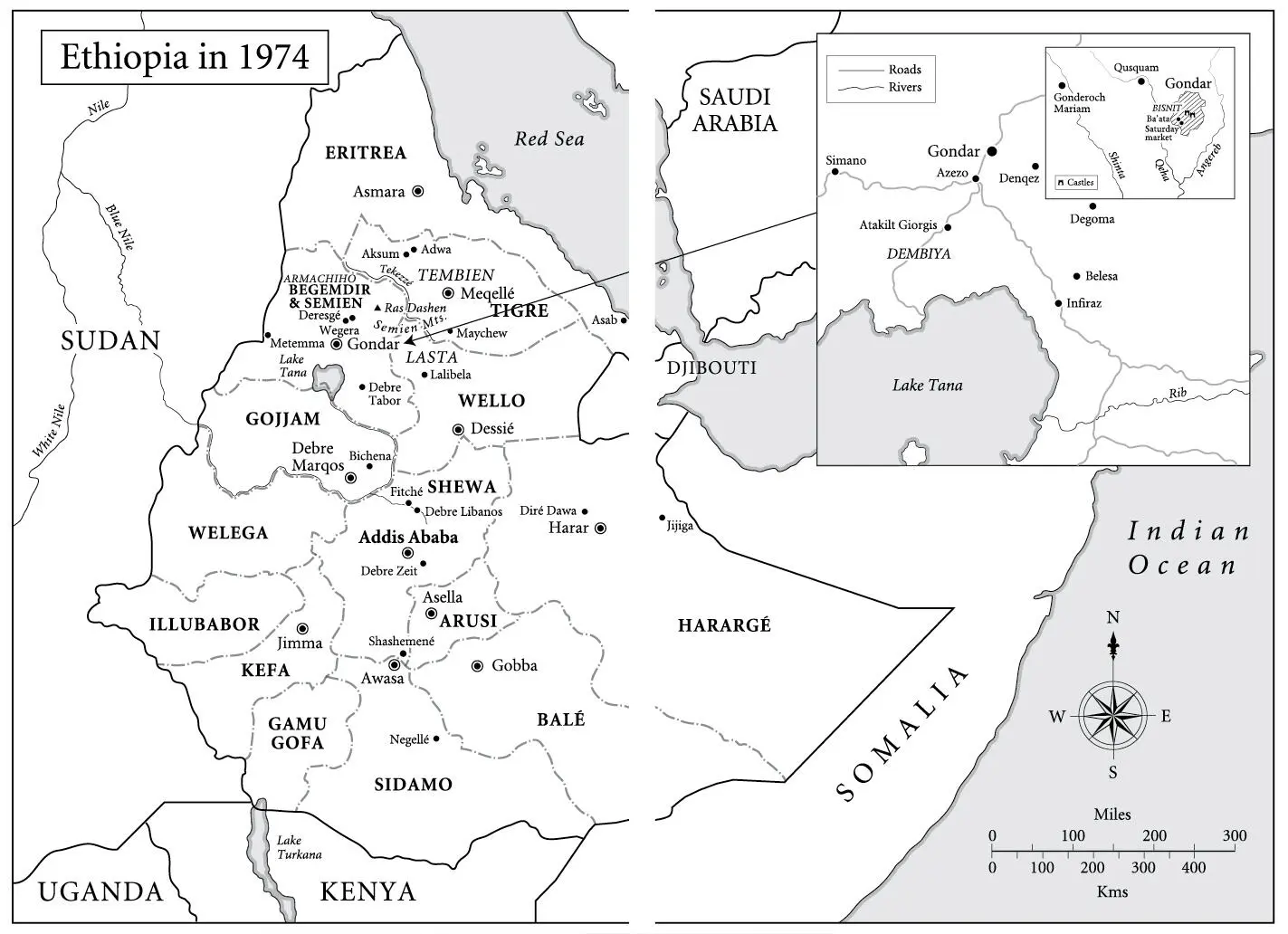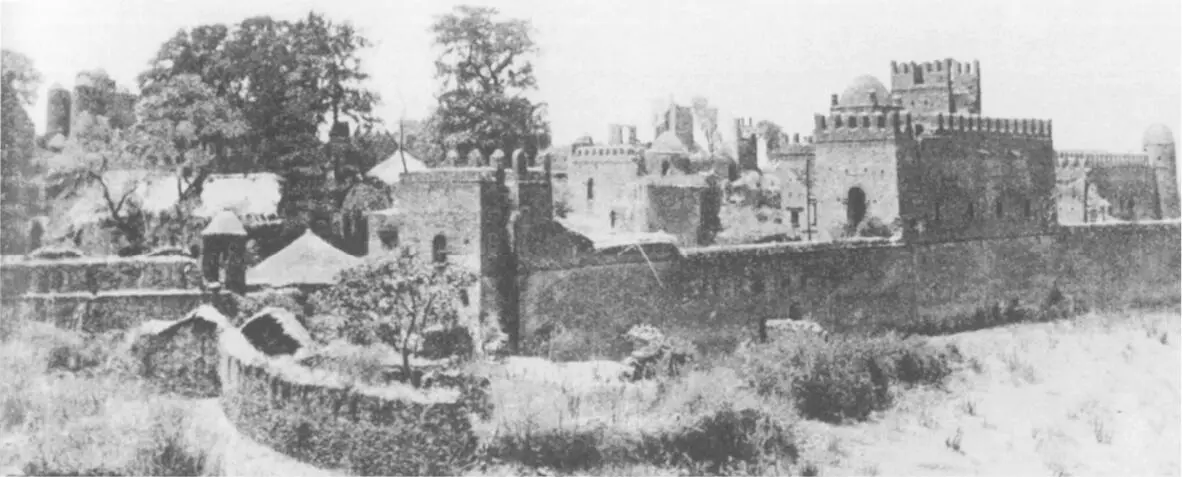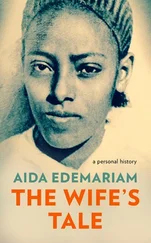
4th Estate
An imprint of HarperCollins Publishers
1 London Bridge Street
London SE1 9GF
www.4thEstate.co.uk
This eBook first published in Great Britain by 4th Estate in 2018
Copyright © Aida Edemariam 2018
Cover photograph by Kazuyoshi Nomachi
Aida Edemariam asserts the moral right to be identified as the author of this work
A catalogue record for this book is available from the British Library
All rights reserved under International and Pan-American Copyright Conventions. By payment of the required fees, you have been granted the nonexclusive, non-transferable right to access and read the text of this e-book on screen. No part of this text may be reproduced, transmitted, downloaded, decompiled, reverse engineered, or stored in or introduced into any information storage retrieval system, in any form or by any means, whether electronic or mechanical, now known or hereinafter invented, without the express written permission of HarperCollins e-books.
Source ISBN: 9780007459629
Ebook edition: February 2018 ISBN: 9780007459612
Version: 2018-12-20
For Rahel
Cover
Title Page
Copyright
Dedication
Map
PAGUMÉ: The Thirteenth Month
BOOK I: 1916–1930
MESKEREM: The First Month
TIQIMT: The Second Month
BOOK II: 1931–1941
HIDAR: The Third Month
BOOK III: 1942–1953
TAHSAS: The Fourth Month
BOOK IV: 1953–c.1958
TIRR: The Fifth Month
BOOK V: 1959–1989
YEKATIT: The Sixth Month
MEGABIT: The Seventh Month
MIYAZIA: The Eighth Month
GINBOT: The Ninth Month
SENÉ: The Tenth Month
HAMLÉ: The Eleventh Month
NEHASSÉ: The Twelfth Month
PAGUMÉ: The Thirteenth Month
Chronology
Glossary
Acknowledgements
About the Publisher

THE THIRTEENTH MONTH
Rains broken by occasional sunshine. Examination of boys in church school to decide who will be deacons. End of fiscal year. New Year’s Eve.

Four coals huddled into a low clay pot, glowing red through their films of ash. My grandmother reached in among the folds of her shawl and drew from a small pouch a kernel of frankincense. She dropped it among the coals and at once it melted, hissing, releasing sweet smoke that rose and tangled with the smell of roasting coffee, of rain gathering beyond the open door, of unfurling earth.
If it rains on Ruphael’s Day, my grandmother said, the water is holy. When we were children we’d tear off our clothes and dance through it singing. And if there was a rainbow it was as though Mary’s sash had been thrown across the sky.
Above our heads, on the corrugated-iron roof, the rain began. Thud. Thud. Thud-thud. Each drop carrying with it a sense of great chill distances travelled, of interrupted speed.
And all through Pagumé anyone young went down to the rivers before dawn, said my grandmother. You had to get to the water before the birds could taste it. She held the round-bellied pot high, so the coffee clattered into the little porcelain cups. Added sugar, or salt, or tiny tear-shaped leaves of rue, passed the cups around. I’ve never liked rivers, though, nor lakes, she said, not since I was a small child.
But even though I was afraid I begged to be allowed to go. I was staying with my grandmother. She was kinder than my aunt, especially when I wet the bed. She’d just turn the jendi over, change the bedclothes. She was patient with me, and loving. Like my mother – and at once my own grandmother was crying, tears spilling into her shawl.
Ayzosh, Nannyé, I said. Ayzosh. Take heart. Yibejish, lijé, she answered. Yes, child, may you be saved. Ayzosh. Yibejish, wiping the wet away. I miss my mother, she said. I know, I answered, I know. So what happened at the river? Steering her back, to distract her as much as anything. Pushing her on, as I did more and more often, knowing many of the stories, but knowing also that there were more, told and retold for decades, shaped, reshaped – or sometimes, when enough time had passed – cracked open in the telling. What did you say? How did you feel, and what do you feel, now?
Sometimes the answers were immediate. Well, I said this, of course, or no, I don’t remember the date, or the time, only that the feast of St John was approaching, and I had so much work to do. Or not now, or I’ve told you that before – though often you could tell it was a rote demurral, that she wanted to continue. Other times the reply was a small smile and a twist into shyness, no, no, those things are not spoken of. When were you happy? I asked once. I’m never happy, came the answer, I’m always crying. All of my life is painted in tears.
The third round of coffee had been drunk, the dregs slopped out into the yard. The smoke drifted into the corners and disappeared. Nannyé held out her hands, palms heavenward. May He bring justice to the wronged, to the poor, to the oppressed. May He clothe the naked and liberate the crucified. May He protect us, and bless us.
I dipped my head. Amen. We watched as sunlight flared through the steam rising from the wet ground, and through the open door. Birds sang.
At last I was allowed to go, she said. We left our houses excited, in the dark, and walked down into the valley. The Qeha had been filling all the rainy season, it moved fast and deep. The other children took off their clothes and jumped in. They cupped the water in their hands and threw it high. They laughed and splashed and wrestled. I edged forward. The water crept toward my toes. I started to move forward again, but I couldn’t bear it. I screamed. And I ran.
She laughed, a laugh that took her over as utterly as her tears had a moment earlier. A complicated laugh, deep and delighted but serious also, for in fact she was still afraid and always would be; because she remembered the child she had been so clearly; because in many ways she was still that child.
BOOK I

Gondar in 1905, from Ethiopia Photographed: Historic Photos of the Country and its People Taken between 1867 and 1935 , ed. Richard Pankhurst and Denis Gerard.
THE FIRST MONTH
Floods recede. Yellow masqal daisies cover the land. New and fallow fields ploughed for cultivation.

AND WHEN THE MAIDEN WAS THREE YEARS OLD IYAKEM CALLED HIS PURE, HEBREW MAIDSERVANTS AND PUT CANDLESTICKS WITH WAX CANDLES IN THEIR HANDS, AND THEY WALKED BEFORE THE MAIDEN AND BROUGHT HER INTO THE HOUSE OF THE SANCTUARY … THEN THE PRIESTS TOOK HER, AND ESTABLISHED HER IN THE THIRD STOREY OF THE HOUSE OF THE SANCTUARY … AND HER KINSFOLK AND THE PEOPLE OF HER HOUSEHOLD TURNED AND WENT BACK TO THEIR HOUSES IN GREAT JOYFULNESS, AND THEY PRAISED THE LORD GOD, AND GAVE THANKS UNTO HIM BECAUSE SHE HAD NOT TURNED BACK … AND MARY DWELT IN THE HOUSE OF THE SANCTUARY OF GOD LIKE A PURE DOVE, AND THE ANGEL OF THE LORD BROUGHT FOOD DOWN FOR HER AT ALL TIMES.
Читать дальше
















